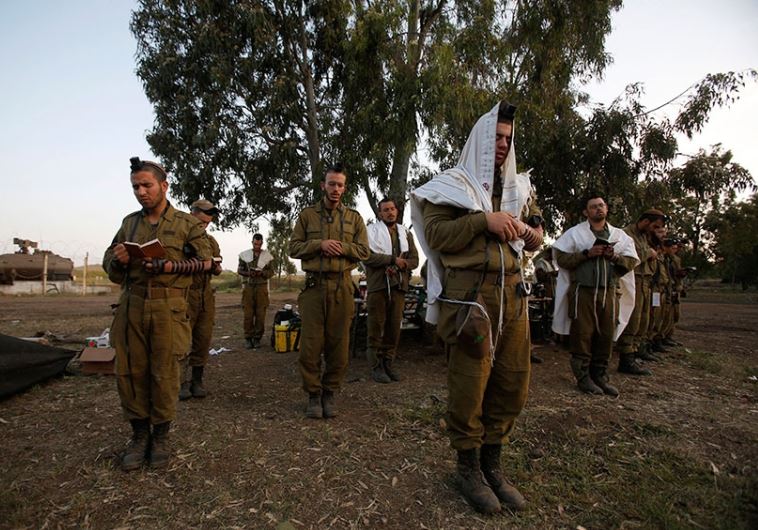New beard controversy generates new anger among national-religious leadership
Tzav Ehad reported that 52 new religious recruits recently drafted to the engineer corps were forced to shave their beards.
 IDF soldiers from the Golani Brigade prayUpdated:
IDF soldiers from the Golani Brigade prayUpdated: